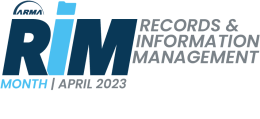 As part of Records & Information Management Month, the K-State Libraries and the Division of IT collaborate to illuminate crucial aspects of records and information management. This week’s focus is on email records.
As part of Records & Information Management Month, the K-State Libraries and the Division of IT collaborate to illuminate crucial aspects of records and information management. This week’s focus is on email records.
Every K-State employee is individually responsible for handling and maintaining records (including University email and other electronic records) under university policy and requirements. Emails are records that may contain evidence of official University actions, decisions, approvals, or transactions. Email is subject to statutes of the State of Kansas, KSA 45-401 through 45-414, which applies to preserving and destroying records.
Email Records Frequently Asked FAQs provide guidance for creating, managing, archiving, and deleting emails. Retention periods are listed on the Records Retention Schedule. Continue reading “Records & Information Management month: Email records management”

 Kansas State University has partnered with Cobblestone Software to transform procurement and contracting activities at the university by implementing a
Kansas State University has partnered with Cobblestone Software to transform procurement and contracting activities at the university by implementing a